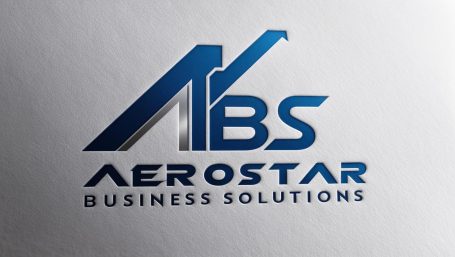Understanding ERP: The Backbone of Modern Business Operations
Enterprise Resource Planning (ERP) is a suite of integrated applications that organizations use to collect, manage, and interpret data from various business activities. With ERP, companies can streamline operations, improve productivity, and enhance decision-making processes. It allows businesses to unify their operations by integrating information from finance, human resources, sales, and supply chain management into one cohesive system. At Aerostar Business Solutions, we recognize the critical role ERP plays in the success of businesses across Houston and beyond. As an accounting software company and business management consultancy, we leverage advanced ERP solutions designed to enhance operational efficiencies. By consolidating data across departments, ERP not only minimizes redundancy but also enables real-time data analysis, ensuring informed decision-making. Whether you're in the accounting sector looking for enhanced reporting capabilities or a business aiming to refine your strategic management, ERP is instrumental in facilitating a seamless flow of information and improving overall business performance.
Why is ERP Important for Your Business?
Implementing an ERP system offers numerous advantages for businesses of all sizes. Here are key reasons why ERP is crucial: - Centralized Data Management: With all data stored in one system, businesses experience improved data integrity, reducing the risk of errors. - Enhanced Efficiency: ERP automates routine business processes, allowing staff to focus on more strategic tasks rather than manual data entry. - Better Decision Making: Real-time insights generated by ERP systems facilitate swift, informed decisions that can lead to competitive advantages.
How ERP Systems Streamline Operations
ERP systems connect various operational departments, from accounting and finance to human resources and supply chain management. This connectivity enables: - Workflow Automation: Streamlining processes reduces delays and provides teams with the tools they need to collaborate effectively. - Improved Reporting: By integrating data across departments, ERP facilitates comprehensive reporting and analytics, which can guide strategic alignment.
Integrating Data Across Departments
One of the most significant benefits of ERP is its ability to integrate data seamlessly across different departments. This integration allows for: - Unified Business Processes: It eliminates data silos, creating a singular source of truth that ensures all departments access the same, up-to-date information. - Increased Collaboration: When data is shared and accessible, teams can work more effectively together, driving innovation and streamlining operations.
Choosing the Right ERP Solution
Selecting an ERP solution tailored to your business needs is essential. At Aerostar Business Solutions, our consultants work with you to: - Identify Key Functionalities: Understand the specific requirements of your business to select features that will enhance productivity. - Ensure Scalability: Choose a system that can grow with your business, accommodating future changes and expansions. - Support Implementation: Our team provides guidance throughout the implementation process to ensure a smooth transition to your new ERP system.
Why Choose ERP Over QuickBooks?
When managing your business finances, choosing the right software is critical for operational success. At Aerostar Business Solutions, we understand that different organizations have unique needs. Discover the differences between ERP systems and QuickBooks to find out which solution fits your business best. ERP (Enterprise Resource Planning) systems are designed for larger organizations that require comprehensive solutions to integrate various business processes under one umbrella. These systems provide a centralized database that supports efficient management of operations, finances, and human resources, enabling corporations to scale effectively. ERPs offer extensive functionalities, including real-time data analytics, advanced reporting, supply chain management, and customer relationship management, making them suitable for businesses that rely on complex operations and require robust oversight. In contrast, QuickBooks is tailored for smaller businesses or those with specific accounting tasks. QuickBooks excels at managing day-to-day finances, such as invoicing, payroll, and expense tracking. Its user-friendly interface makes it accessible to users without extensive accounting knowledge, ensuring effective financial management for startups and small enterprises. Ultimately, the choice between ERP and QuickBooks centers on the size of your organization and the complexity of your operations. For businesses experiencing rapid growth or those operating in multiple sectors, ERP provides the structured framework necessary to maintain efficiency and ensure strategic growth. QuickBooks remains an excellent fit for those who need straightforward accounting solutions without the intricate functionalities of an ERP.
Unlocking Potential: The Power of Outsourced Financial Services
In today’s competitive marketplace, businesses face numerous challenges that require strategic solutions. One effective approach to navigating these complexities is through outsourcing financial services. By leveraging the expertise of external professionals, companies can streamline their operations, save on costs, and access specialized knowledge that significantly enhances financial management. This not only contributes to improved accuracy and compliance but also fosters overall business growth.

Cost Savings and Efficiency
Maximize Your Resources
Outsourcing financial services allows businesses to reduce overhead costs associated with maintaining a full-time accounting department. By partnering with experts, organizations can pay for only the services they need, avoiding unnecessary expenses. This financial efficiency enables companies to redirect valuable resources towards other critical areas, thus maximizing their operational potential.

Access to Specialized Knowledge
Harnessing Expertise for Better Outcomes
Financial regulations and practices are constantly evolving, and keeping up can be daunting. Outsourced financial services grant businesses access to a pool of specialists knowledgeable in the latest trends and compliance standards. These experts provide valuable insights and ensure that financial processes align with legal requirements, giving businesses peace of mind and allowing them to focus on their core competencies.

Enhanced Financial Management
Streamlining Processes for Success
By outsourcing financial services, businesses benefit from improved financial management practices. With advanced accounting software and expert insights, organizations can enhance their budgeting, forecasting, and reporting capabilities. This strategic advantage allows businesses to make informed decisions quickly, adapting to the market's demands and positioning themselves for sustained growth.

Focus on Core Business Objectives
Delegating Financial Tasks Effectively
When financial tasks are handled by external professionals, internal teams can concentrate on core business functions rather than being bogged down by administrative duties. This shift not only boosts productivity but also fosters innovation and agility within the organization. By strategically delegating financial responsibilities, businesses are empowered to pursue new opportunities and drive success.
Aerostar Business Solutions, LLC 2025©Copyright. All rights reserved.
We need your consent to load the translations
We use a third-party service to translate the website content that may collect data about your activity. Please review the details in the privacy policy and accept the service to view the translations.








